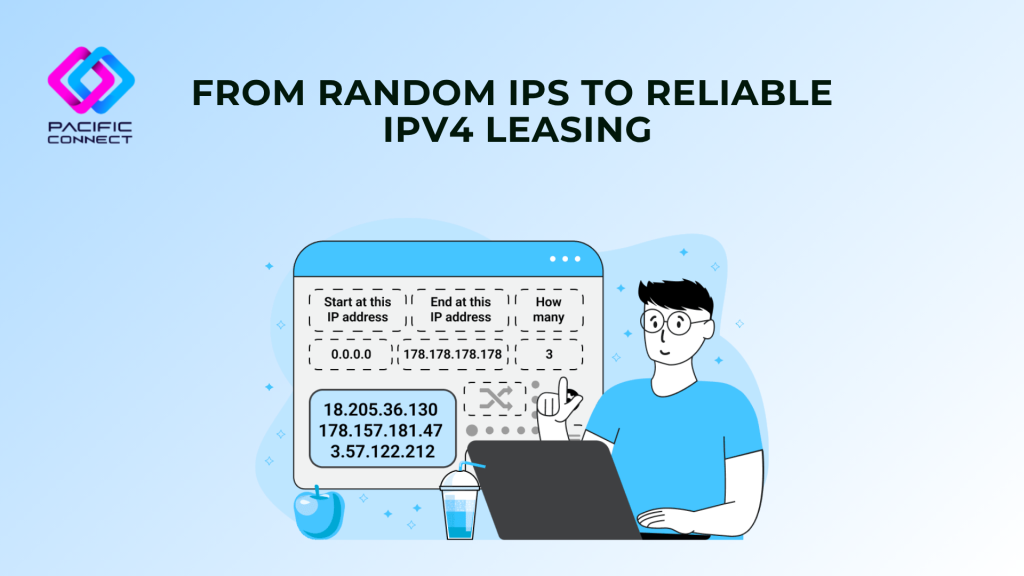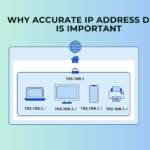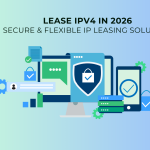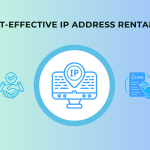In a world driven by digital connectivity, the way businesses manage IP addresses plays a critical role in performance, security, and growth. Many organizations still depend on random IP addresses assigned by ISPs, unaware of the operational challenges and risks involved. This blog explores how IPv4 leasing offers a smarter, future-proof alternative.
What is a Random IP Address?
A random IP address refers to a dynamically assigned internet protocol address that can change over time. These are commonly provided by ISPs to consumers or businesses without fixed IP needs. While convenient for general browsing or non-critical applications, they fall short in scenarios demanding reliability and network consistency.
The Drawbacks of Random IP Addresses
Lack of Stability: IPs can change frequently, affecting remote access, domain management, and security.
Limited Security Control: Since users have no control over IP reassignment, tracing activity or securing the network becomes difficult.
Poor Business Fit: Businesses relying on consistent online services need stable IPs for performance and compliance.
The Power of IPv4 Leasing
IPv4 leasing allows companies to rent blocks of IP addresses for a set duration, offering flexibility and control without the cost of full ownership. As IPv4 availability continues to decline, leasing becomes a vital strategy for IT scalability.
Key Advantages of IPv4 Leasing
Improved Network Reliability: Assigned IPs remain stable, allowing better uptime and smoother configurations.
Scalability on Demand: Easily scale your address pool as your network grows.
Cost Efficiency: Avoid high upfront capital costs associated with buying IPv4 addresses.
Enhanced Security: Gain control over access logs, secure firewalls, and implement tighter access policies.
Why Businesses Are Making the Switch
With cybersecurity concerns on the rise, companies are looking for solutions that offer both agility and protection. IPv4 leasing addresses this need by offering a structured, monitored, and traceable IP management method—something random IPs can’t provide.
For example, businesses hosting secure customer portals or internal tools need IP addresses that won’t suddenly change or be reassigned by an ISP. Leasing ensures those addresses are fixed for the duration, improving customer trust and data security.
Making the Transition to IPv4 Leasing
Transitioning to IPv4 leasing is easier than most organizations expect. Here are three simple steps:
Evaluate Your IP Needs: Understand current usage and future projections.
Select a Reputable Leasing Partner: Work with providers that offer clean, reliable IPs with support.
Integrate and Monitor: Configure your leased IPs into existing infrastructure and track usage over time.
Final Thoughts
Random IP addresses may work for basic internet access, but they don’t support the security and control modern enterprises require. IPv4 leasing offers an intelligent, scalable, and secure alternative that helps businesses streamline operations and stay competitive.
FAQs
Any business looking to stabilize its network infrastructure, secure data, or scale operations should explore IPv4 leasing.
Leasing is ideal for companies needing flexibility without the long-term commitment or cost of purchasing.
Yes. Depending on the provider, you can lease anything from a single IP to large subnets.
You can renew, expand, or cancel your agreement based on your evolving business needs.
Yes. Leasing gives you more control over IP usage, helping implement stronger privacy and security protocols.






